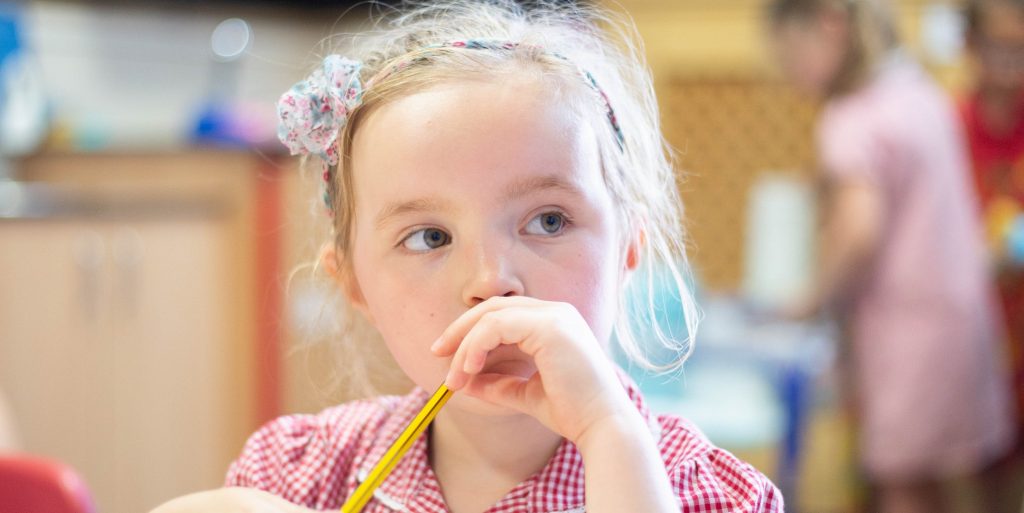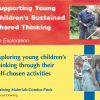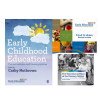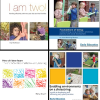How nurseries show community leadership and create happier local neighbourhoods
by Mona Sakr Nurseries are at the heart of enabling children to positively contribute to the communities they live in. Through their work with children
Early childhood seems like a time of constant change to adults. Just as you’ve got used to a predictable daytime nap, your child decides that she would rather play and chat than sleep. And just when you’ve worked out how to change her nappy while she’s standing up (because she won’t lie down), she insists that she must wear pants and use a potty. These are the everyday ways in which young children tell their parents and carers that they are moving on. They like to test their new abilities, sometimes demanding to “do it myself!” All young children need to take these early steps towards independence, and adults generally enjoy the new development. But coping with sudden changes is not always easy for children or for their caring adults. After all … while she may want to use the potty, is she really ready for it?
Are some changes more significant? Adults tend to focus on what seem like really significant transitions: perhaps moving a baby from breast or formula milk towards the family diet and the delight of a full night’s sleep. It seems obvious that young children need to be eased into regular shared care arrangements or be prepared to join nursery class or pre-school. Many young children nowadays have some kind of group experience before entering primary school, but starting school can still feel like the “big” one for children and parents.
Perhaps parents focus on major milestones in early childhood because they know what is coming. Young children don’t have that knowledge. They deal with one day at a time and it can be smaller changes that confuse or trouble them. They learn to cope with change because caring adults have anticipated as much as they can and then are ready to look and listen for what really matters to this baby or that toddler.
It is vital to tune in to how young children are most likely to see any situation. Once they have the words to talk about something, they may speak up with, “But why have I got to…?” or “But you said that….!”
Sometimes they might let you know just as loudly through their actions that there has been a big change from what they see as normal. What you might ignore as “tantrums” may be the only way that young children can express frustration over changes that make no sense to them. It may be their way of asking for more help. For example, some young children seem to wonder why their parents have stopped the loud encouragement when they make it to the toilet. Adults perhaps feel that toilet training is now done, but 2- and 3-year-olds often look puzzled – and a bit annoyed. They are still making the big effort, so what has happened to all the praise? You do not keep clapping into the teenage years, but children like it to die down slowly.
Young children work hard to make sense of their social world. To feel emotionally safe, they need to be able to predict how the adults around them will behave and what tends to happen in daily life. When life is unpredictable, children have to use an awful lot of energy to work things out – What does she want me to do? Why is he cross with me? What’s the big rush?
Change is inevitable in childhood, so children need to feel able to manage. Positive experiences of coping with small daily changes will help them to face the big transitions. Children also need to feel confident that it is OK to ask for help, that adults will care about them. Through their experience of everyday changes, children learn whether they are somebody who can cope. Is change something that can be managed because adults let them know what will happen and listen to how they feel? Or is even minor change unpleasant and disruptive because adults give no warning, then get cross because children are upset and cranky?
Children can become able to handle big changes like moves to new places or new people when they are very young. But they need help to develop this ability. Of course, young children are all individuals – even when they are siblings. (Perhaps Alex likes advance notice, repeated three times, of any change in routine while his sister Sophie looks confused by the same warnings, as if to say, “Why all the fuss? Let’s just go!”) The key to supporting any child through changes is to learn which of your actions tend to be most helpful to that individual.
Children are still very young when they enter primary school and are often most anxious about taking care of themselves. They will feel more confident if you have spent time beforehand helping them to manage their clothing and shown them how to ask for help if they need it.
Even the most carefree girl or boy will have limits. Try to avoid a patchwork of care that creates a day in which children have to deal with many places and lots of people with different ground rules. Children will let you know – by words and action – if the pattern of changes is a real struggle.
Most children will tell you quite clearly that “this is all too much for me!” or “I don’t know what’s happening!” – although they may not do it with words. You need to watch what they do as well as listen to what they say. Ask open-ended questions like, “How was your weekend with Grandma?” and “What do you think about your new playgroup?” Young children hear the message behind a closed question like, “You’re fine in nursery, aren’t you?” and realise you do not really want to hear them say, “No”. If children are given no choice but to struggle on, their unhappiness may come out in behaviour that is hard to handle. Young children can surprise you. They may be more flexible, even keener on a change than their parents. Perhaps you have been surprised by your child waving a cheery goodbye on his first day into playgroup. Well, perhaps you have done such a good job preparing him to be confident. Younger siblings, who have visited nursery to drop off an older child, may have been counting the days until they can stay in that lovely construction area with all the blocks.
Even so, it is worth keeping alert when children seem settled as they may have a delayed reaction to change. Younger siblings might be keen to join the nursery, but may still be tearful that you are not staying. Children may also believe, even with all your careful conversation and reading stories, that a change is only temporary. For example, young children may be sure that, “soon we’ll go back to our old home”. Some 5 year olds still think that after one day they have “done big school”. In time, children learn that many changes are forever – and they will come to enjoy a great number of them.
Jennie Lindon is a chartered psychologist, with over 30 years’ experience of working with early years services for children and their families. She has written many books and magazine articles for parents and early years practitioners.

by Mona Sakr Nurseries are at the heart of enabling children to positively contribute to the communities they live in. Through their work with children
The Families’ Access to Nature Project was undertaken by the Froebel Trust and Early Education between October 2021 and January 2022. Children, their parents, and
ICT – what’s it all about? ICT is information and communications technology. The term simply means all the technology around us, things like mobile phones,
Toddlers are very busy people. They are keen to learn about the world around them and ready to be fascinated by things that seem ordinary
Children’s curiosity about the world around them is apparent from the day they are born. Babies quickly use all their senses to explore themselves and
Reading is fun. It’s also a key skill that helps us to learn and to live our lives – so starting to read is an
What? Why? When? Where? What for? – and Why? yet again. Sometimes children’s questions just keep on coming. It can be wearing, especially if you
It’s true, maths really is everywhere, and learning about it doesn’t happen just at school or nursery. Young children have lots of important mathematical experiences
What is mark making? Mark making is the term used to describe the marks that children in their early years make on paper and is
The role of music in the early years Everyone knows how much young children love to sing and dance, but all too often music is
Children learn how to behave All children are individuals, because they are born with their own character. This is why even children within the same
Why go outside? Big movers Have you ever been in an open space with young children? The first thing they want to do is to
Young children are artists. They use all sorts of materials to show what they have noticed about the world. They might draw the rain falling
Taking care of a baby is tiring work, with a lot of feeding, nappies and broken nights. When you are exhausted, it can be harder
Healthy settling for high wellbeing How can we best help children feel at ease so that they are secure and settled in their new provision?
Here are twelve links with free ideas to support play and learning at home, suitable for early years, nursery, reception and school aged children in
This page was written following our Community of practice about transitions. We had a lot of sharing and questioning about this and so we thought we
It is important to include families in helping to shape your decisions in relation to developments you want to make. Families know their circumstances best
Here is a list of books and resources compiled by Anni McTavish to support feelings and behaviour. Reference books Why Love Matters – how affection
When children cry they are telling us something important We need to understand and listen to their tears. Supporting children when they express strong emotions
ACEs: Adverse Childhood experiences On this page we will collate information we find about Adverse Childhood Experiences (ACEs), a relatively new scientific concept impacting early
Since the introduction of the EYFS framework in 2008 there has been a huge emphasis upon encouraging parents to become engaged in their children’s learning.
The Duchess of Cambridge launched The Royal Foundation Centre for Early Childhood on 18th June 2021 with a substantial report Big change starts small which identifies six
Animals are special and important to many young children. In fact, even if they do not share their home with a pet, they will meet
As schools and settings open up fully once more to all children after yet another long lockdown, now is a really important time for practitioners
Entering the unknown It was extremely hard and emotional to say goodbye to the children and parents in my Reception class at the end of
by Cathy Gunning Showing empathy creates calm Showing and demonstrating empathy to children who have experienced trauma and have attachment difficulties, can help them to
There is no doubt about it, settling takes time for many children. For others it would appear it takes no time at all. If we






Early Education
2 Victoria Square
St Albans
AL1 3TF
T: 01727 884925
E: office@early-education.org.uk